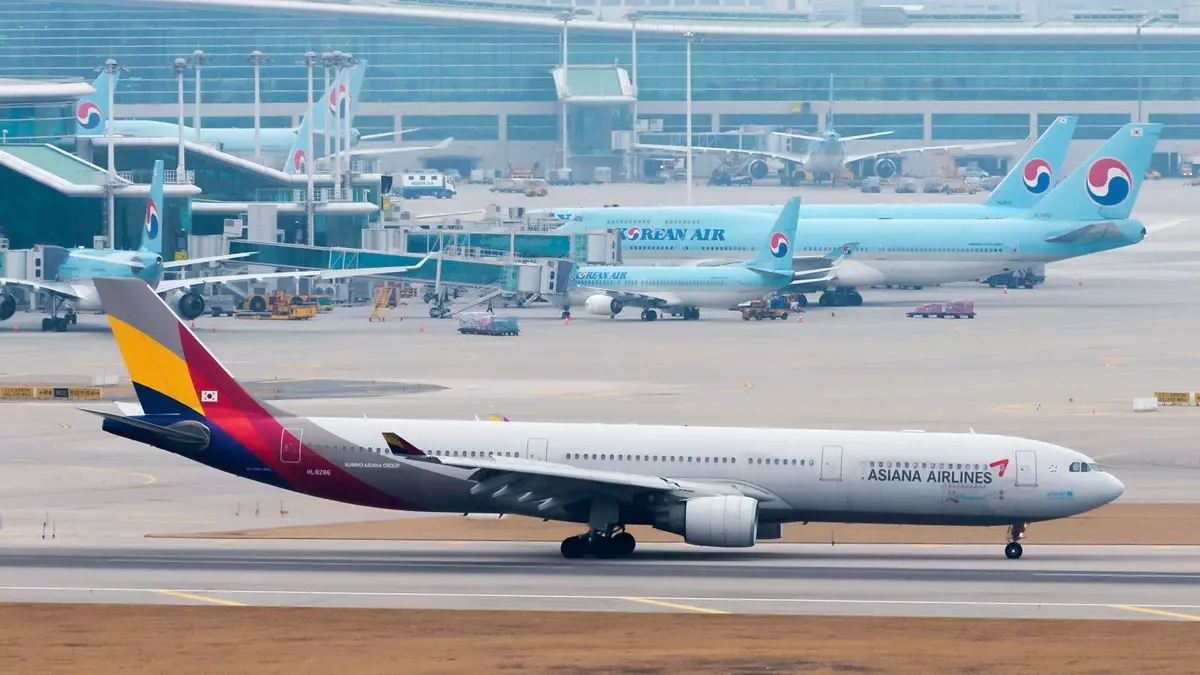In a groundbreaking development for the aviation industry, Korean Air has finalized its acquisition of Asiana Airlines, marking the culmination of a $1.3 billion transaction that grants Korean Air a predominant 64% stake in South Korea’s second-largest airline. This merger, which unfolded in the wake of the global Covid-19 pandemic, signifies a transformative shift in the South Korean airline landscape and allows Korean Air to ascend to the rank of the 11th largest airline in the world, based on international weekly seat capacity. Prior to this acquisition, Korean Air held the 22nd position, while Asiana languished at 40th.
The ramifications of this merger extend far beyond mere rankings. With this strategic consolidation, the Korean Air Group now commands a significant 47% share of the South Korean international market. This figure encompasses not only Korean Air and Asiana but also their low-cost subsidiaries: Jin Air, Air Busan, and Air Seoul. In a strategic move, Air Busan and Air Seoul will be integrated into Jin Air, streamlining operations under one banner. Despite these changes, the Asiana brand is set to maintain its operational identity in the near term, paving the way for a complete integration process anticipated within the next two years.
Regulatory Challenges and Approvals
Navigating through the regulatory landscape has been a critical aspect of this merger. The European Commission recently authorized the acquisition, signaling a positive outcome for Korean Air and Asiana. Approval from competition authorities in Japan and China further underscores the global consensus on the viability of this merger. However, the scrutiny from the U.S. Department of Justice remains unassessed, with no formal approval granted as of yet. Nevertheless, Korean Air’s decision to proceed with the acquisition suggests that they are confident in receiving clearance to move forward.
As part of the merger’s approval process, various concessions were mandated by competition authorities to foster market competition. One notable stipulation involved Korean Air leasing four Boeing 787s to the emerging player Air Premia, which aims to enhance competition within the South Korean-U.S. flight corridor. At present, Korean Air operates 11 destinations in the U.S. while Asiana services five routes, all originating from Seoul. Air Premia’s entry into the market, with flights to Newark, San Francisco, and Los Angeles, signifies a fresh competitive dynamic in an arena traditionally dominated by the larger players.
As the airline industry gradually rebounds from the pandemic’s grip, the acquisition of Asiana Airlines by Korean Air heralds a new chapter in South Korean aviation. With increased capacity, a stronger market share, and a strategic integrational approach, Korean Air is poised to enhance its service offerings while maintaining a competitive edge in the region. As stakeholders and customers alike look towards the future, the implications of this merger will play a crucial role in shaping the future of air travel in South Korea and beyond.


Leave a Reply